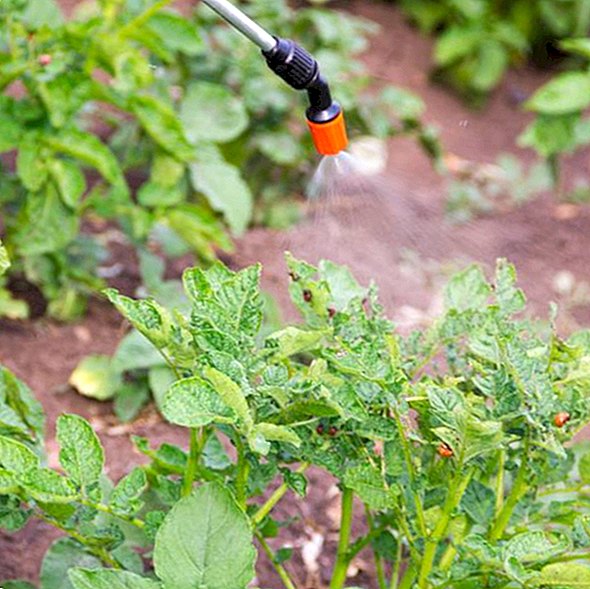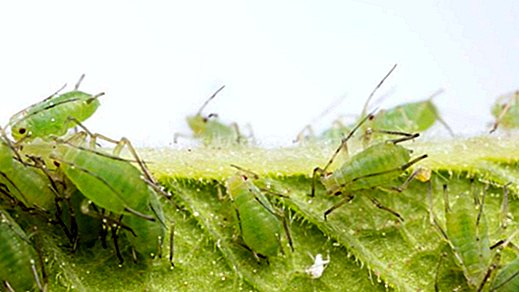Fighting Colorado Beetles: These tricks work!

The Colorado beetle was introduced to Europe from the USA at the end of the 19th century. with devastating consequences. Large plagues destroyed entire potato fields in many areas and destroyed people's staple foods. Thanks to sophisticated methods of control, the Colorado beetle is no longer such a threat, but because he extremely robust and adaptable is his infestation, even today, not to take lightly.
We'll tell you what you can do about the voracious leaf beetle, how to get your beloved nightshade plants pest-free and how to save your potatoes.
Fighting Colorado beetles: Organic instead of chemistry
Potato beetles are malicious pests, as they have hardly any natural scavengers in this country and, on the other hand, quickly develop resistance to insecticides. Ecological pesticides and home remedies have proven effective, with which not only organic farmers but also hobby gardeners can kill the beetle and its larvae.
You better keep your fingers out of chemical clubs like spinosad, Spinosad not only kills the Colorado beetle but is also poisonous to bees and other beneficials. There are significantly gentler methods to get your plants pest-free.
Fighting Colorado beetles: the right time
Just as important as choosing the right remedy is the timing of pest control. The adult Colorado beetle in principle does not cause any significant damage, much worse is the first generation of the Colorado beetle larvae in spring.
It originates from the eggs of the Colorado beetle, which crawl out of the ground with the potato shoot in spring. If this generation of larvae is effectively controlled, the year can no longer build up a large potato beetle population.
Colorado beetle: the best control
- Absammeln: The tried and tested home remedy to collect the beetles and potato beetle larvae, although laborious, but extremely effective. Similarly, you should look for the yellowish egg yelk while collecting and also remove it from your potato plants.
- Hake from horseradish: Horseradish is a natural spray against the Colorado beetle. Mix ten liters of water with one kilogram of fresh or 200 grams of dried horseradish and let the mixture stand in the sun for a few days. In a spray bottle filled you can spray the potato plants with the manure. Do not forget the underside of the leaves, because that is where the eggshell sticks. As early as spring, you can precautionarily put the manure on your beds with potatoes and other solanaceae plants, as it prevents the potato beetles crawling out of the ground in advance from laying their eggs on the leaves.
- Mint or fern broth: Equally natural and harmless is one Sud of mint or fern to combat the Colorado beetle. Pour half a bucket of mint or fern with 5 liters of boiling water. After cooling, filter out the solid ingredients and dilute the broth in 1:10 ratio with cold water. The broth can now be sprayed on the affected nightshade plant.
- Rock flour and wood ash: If you scatter rock powder, finely crushed rock, or wood ash on your infested potato plant, they remove body fluids from the larvae, which ultimately causes them to dry out. Nice side effect: The two materials are also considered as fertilizer, make the plants more resilient, which in turn makes them less susceptible to pests of all kinds.
- Neem: Pesticides with the active ingredients of the tropical Neem tree are used in organic vegetable growing against the Colorado beetle, but also hobby gardeners are successful with this insecticide. The middle works best against the young larvae of the Colorado beetle, because they are particularly herbivorous and absorb much of the deadly substance.
- Bacillus thuringiensis: Sprayed on the potato plants, the bacterium Bacillus thuringiensis develops one toxinthat can be deadly to the Colorado beetle and potato beetle larvae. For humans, animals and plants, however, the toxin is harmless. If the larvae eat the bacterium, they stop eating, which ultimately leads to death. Products approved for use in private households, such as Novodor, already act in the early larval stage and should therefore be given prematurely to the potato plant.
In your home garden, you can plant a lot more: planting apple trees, planting thyme, planting strawberries, planting blueberries or planting oregano.
Videotipp: This is how you get rid of aphids











